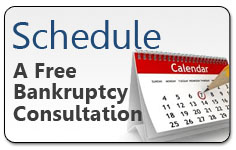By John G. Merna, Esq.
Every one who has ever faced foreclosure is frightened about losing their house and wondering what to do. You may have heard a lot about bankruptcy but just don’t understand how it will help you. This blog is to give you an overview of how the two consumer bankruptcies, Chapter 7 and Chapter 13, can assist in saving your house.
DISCLAIMER: Every situation is slightly different. This blog is not to be a substitute for seeking legal advice. If you are behind on your mortgage payment and facing a foreclosure sale contact Merna Law or any qualified bankruptcy attorney to insure you are fully analyzing your situation to determine the proper type of bankruptcy to file.
General Considerations About Filing Bankruptcy To Halt A Foreclosure:
The primary consideration when determining what type of bankruptcy to file to halt your foreclosure starts with simple math. Can you afford your house?
A multitude of things can occur to make a person fall behind on their mortgage payments: loss of income, illness, unexpected expenses, etc. What the specific circumstances are that cause you to fall behind and whether the condition that forced the default has passed are primary factors in determining what to do.
I have counseled many frighten people grasping to save their home whose fear has not allowed them to confront an important reality that helps soberly decide what to do, the reality that they cannot afford the houses. If this is the situation admitting it to yourself is not a sign of defeat. It is healthy and it is useful so you can soberly construct a plan.
Understanding The Difference Between Chapter 7 & Chapter 13
Understanding the difference between a Chapter 7 bankruptcy and a Chapter 13 bankruptcy is vital in order to understand or construct a plan to deal with your foreclosure. A Chapter 7 bankruptcy, often referred to as a “liquidation”, eliminates your unsecured debt like credit card debts, personal loans, medical bills, etc. This type of debt is not secured by any property like a car payment or mortgage payment and is therefore termed “unsecured debt.”
A Chapter 13 bankruptcy, also referred to as a “debt reorganization”, can liquidate unsecured debt in full or in part and can also restructure secured debt such as missed mortgage payments, vehicle loans, etc. Most people whose foreclosure situation arises as a result of a temporary situation that has already passed generally use a Chapter 13 to catch up on the missed payments.
What Is The Goal In Filing?
There are two general goals that apply to a person facing a foreclosure. This first, which arises when the person can afford their normal mortgage payment, is to use a bankruptcy to assist in catching up with the missed mortgage payments over time. The second goal for people who cannot presently afford their regular mortgage payment is to halt the foreclosure and “buy time”. “Buy time” to do what you ask? Buy time to get their income back. Buy time to get over the illness that might be effecting their income. Buy time to put together money to move. Buying time can be important.
What Are The Advantages Of A Chapter 7 Bankruptcy?
Both types of bankruptcy will halt a foreclosure sale immediately. A Chapter 7, which eliminates unsecured debt, does not address catching up on the missed payments. The whole process from filing to discharge is about 90 days, so a foreclosure can resume within a couple of months a filing the case. It can be used to buy time.
What Are The Advantages of A Chapter 13 Bankruptcy?
A Chapter 13 bankruptcy is the type of bankruptcy used to halt a foreclosure when the owner can afford the house payments. You can set up a payment plan to catched up on the missed payments in a Chapter 13. The Chapter 13 plan of reorganization can also restructure other debt to redirect income to assist in affording the house and the Chapter 13 plan. Because the missed mortgage payments are spread over a 36 to 60 month plan it make it affordable for the homeowner. While you are in the repayment plan you also have the time to apply for a modification of your monthly mortgage payment. Such a modification can also address the missed payments and might make it possible for you to exit the Chapter 13.
Don’t Go It Alone. Find A Qualified Bankruptcy Attorney.
Foreclosures can be tricky but bankruptcy cases are trickier. Don’t try to navigate a foreclosure alone. Give Merna Law a call. Don’t risk your house by trying to do it yourself. We are here to help.

